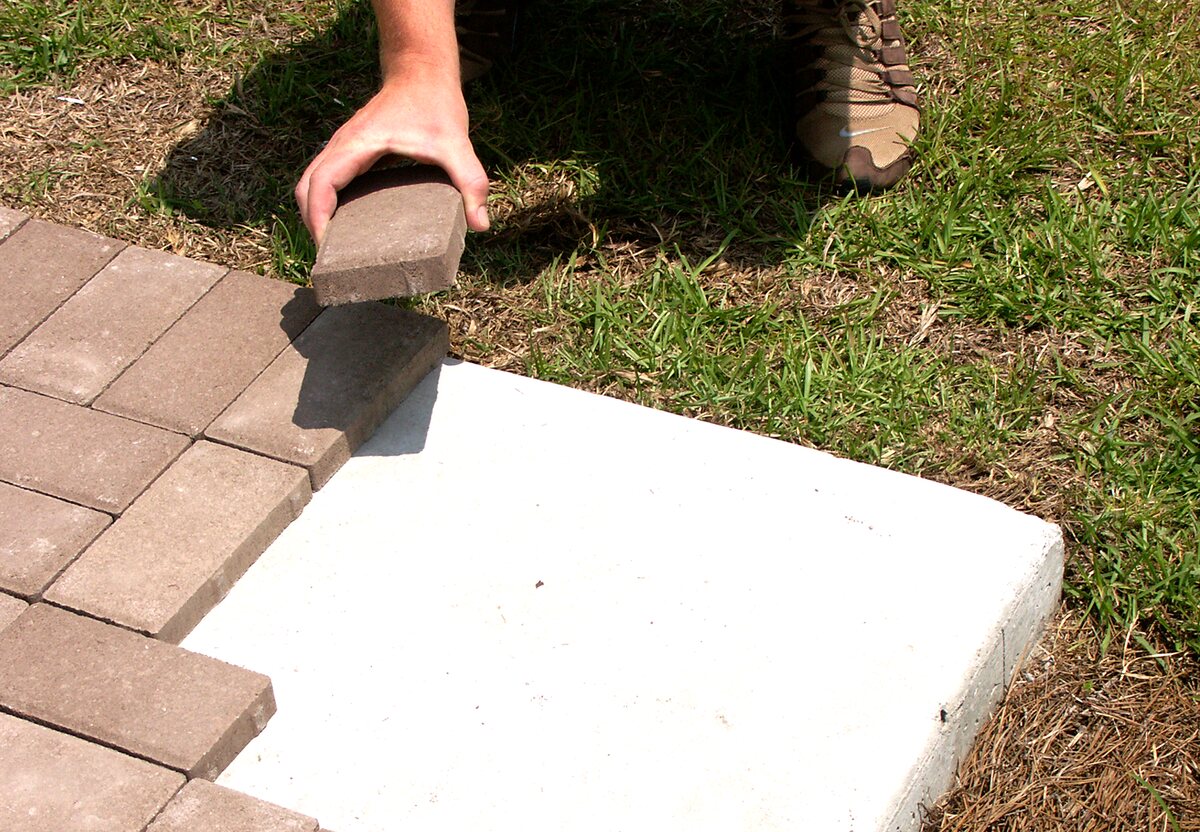

Articles
How Much Weight Can Concrete Driveway Hold
Modified: December 7, 2023
Find articles on how much weight a concrete driveway can hold. Learn about the weight limits and factors that affect the capacity of your driveway.
(Many of the links in this article redirect to a specific reviewed product. Your purchase of these products through affiliate links helps to generate commission for Storables.com, at no extra cost. Learn more)
Introduction
Welcome to our comprehensive guide on concrete driveways and their weight capacity. Whether you’re a homeowner planning to park heavy vehicles or a business owner considering the load-bearing capacity of your commercial driveway, understanding the weight limits of a concrete driveway is crucial.
A concrete driveway serves as the foundation for your vehicles, supporting their weight day in and day out. It is essential to ensure that your driveway can handle the weight of your vehicles, preventing any potential damage to the concrete or safety hazards for yourself and others.
In this article, we will discuss the various factors that determine the weight capacity of a concrete driveway, the different types of concrete driveways and their weight limits, how to calculate the weight capacity of your driveway, and tips on how to increase the weight holding capacity.
So, let’s dive in and learn more about the weight capacity of concrete driveways.
Key Takeaways:
- Ensure your concrete driveway can handle the weight of your vehicles by considering factors like concrete strength, driveway thickness, reinforcement, subgrade soil, and environmental conditions. Consult professionals for accurate assessments.
- Increase the weight capacity of your concrete driveway by using high-strength concrete, adding reinforcement, increasing driveway thickness, maintaining proper drainage, addressing subgrade issues, sealcoating, and following recommended maintenance practices. Prioritize safety and longevity for a durable driveway.
Read more: How Much Weight Can An Asphalt Driveway Hold
Factors that Determine the Weight Capacity of a Concrete Driveway
Several factors play a crucial role in determining the weight capacity of a concrete driveway. Understanding these factors will help you assess whether your driveway can handle the weight of your vehicles or if any modifications are needed for increased durability.
- Concrete Strength: The strength of the concrete used in your driveway is a significant factor in determining its weight capacity. The concrete must be designed with an adequate compressive strength to withstand the load imposed by vehicles without cracking or crumbling.
- Driveway Thickness: The thickness of the concrete driveway also impacts its weight capacity. Thicker driveways can bear heavier loads because they distribute the weight over a larger area. In general, residential driveways are typically 4 to 6 inches thick, while commercial driveways are often thicker to accommodate heavier vehicles.
- Reinforcement: The use of reinforcement, such as steel bars or fibers, can greatly enhance the weight capacity of a concrete driveway. Reinforcement helps to distribute the load evenly throughout the concrete, preventing excessive stress in specific areas.
- Subgrade Soil: The condition and stability of the subgrade soil beneath the concrete driveway are critical factors. If the soil is weak or prone to shifting, it can lead to uneven settlement and potentially impact the weight capacity. Soil testing can determine if additional measures, such as soil stabilization or the use of a thicker concrete base, are necessary to ensure sufficient support.
- Environmental Factors: Climate and weather conditions can affect the weight capacity of a concrete driveway. Freeze-thaw cycles, excessive moisture, extreme temperatures, and exposure to chemicals can deteriorate the concrete over time, reducing its strength and load-bearing capacity.
It is important to consider these factors when assessing the weight capacity of your concrete driveway. Consult with a professional contractor or structural engineer to evaluate your specific situation and determine the appropriate design and specifications for your driveway.
Types of Concrete Driveways and Their Weight Limits
Concrete driveways come in various types, each with its own weight limits based on the design, reinforcement, and intended use. Understanding the different types will help you choose the most suitable option for your specific needs.
- Standard Concrete Driveway: Standard concrete driveways are the most common type and can typically handle the weight of regular passenger vehicles without any issues. They are usually 4 to 6 inches thick and reinforced with steel bars or fibers to enhance strength and durability. These driveways have weight limits ranging from 3,000 to 5,000 pounds per square inch (psi).
- Reinforced Concrete Driveway: Reinforced concrete driveways are designed to handle heavier loads and are commonly used in commercial or industrial settings. These driveways have additional reinforcement, such as thicker rebar or wire mesh, that increases their weight capacity. Depending on the specific design and thickness, reinforced concrete driveways can have weight limits of up to 8,000 psi or more.
- Stamped Concrete Driveway: Stamped concrete driveways are aesthetically pleasing and mimic the look of expensive materials like stone or brick. While they offer versatility in design, the weight capacity can vary depending on the thickness and reinforcement used. Generally, stamped concrete driveways have weight limits similar to standard concrete driveways, ranging from 3,000 to 5,000 psi.
- Pervious Concrete Driveway: Pervious concrete driveways are eco-friendly options designed to allow water to drain through the surface, reducing runoff and promoting groundwater recharge. The weight capacity of these driveways is similar to standard concrete driveways, offering stability for regular passenger vehicles.
- Colored Concrete Driveway: Colored concrete driveways add visual appeal by incorporating pigments into the concrete mixture. The weight capacity of colored concrete driveways depends on the same factors as standard concrete driveways, typically ranging from 3,000 to 5,000 psi.
Keep in mind that the weight limits provided are general guidelines. To determine the specific weight capacity of your chosen driveway type, it is essential to consult with professionals who can assess the design, reinforcement, and other factors specific to your project.
When determining how much weight a concrete driveway can hold, consider the thickness and strength of the concrete, as well as the subbase and soil conditions. It’s important to consult with a professional engineer to ensure the driveway can support the intended weight.
How to Calculate the Weight Capacity of a Concrete Driveway
Calculating the weight capacity of a concrete driveway involves considering several factors, including its dimensions, thickness, and the material properties. Here’s a step-by-step guide on how to estimate the weight capacity:
- Determine the dimensions: Measure the length and width of your driveway in feet. Multiply these two values to get the total surface area in square feet.
- Calculate the volume: Multiply the surface area by the thickness of the concrete in feet. This will give you the volume of concrete in cubic feet.
- Convert to pounds: Multiply the volume by the weight per cubic foot of the concrete. On average, concrete weighs about 150 pounds per cubic foot. This will give you the weight of the concrete in pounds.
- Factor in the weight distribution: Consider the weight distribution of the vehicles that will be using the driveway. For example, if you have a heavy truck with concentrated weight in specific areas, you may need to focus on calculating the weight capacity in those sections to ensure they can bear the load.
- Consult load capacity recommendations: Manufacturers and industry standards provide load capacity recommendations for different types of driveways. Compare your calculated weight to these recommendations to determine if your driveway can handle the intended load. Keep in mind that these recommendations are general guidelines, and consulting with professionals is always advised.
Remember, this calculation is an estimation, and other factors such as soil condition and reinforcement should be taken into account. It is crucial to consult with a professional contractor or structural engineer for a thorough assessment and to ensure the safety and longevity of your driveway.
Tips for Increasing the Weight Holding Capacity of Your Concrete Driveway
If you’re concerned about the weight capacity of your concrete driveway and want to increase its strength and durability, here are some tips to consider:
- Use high-strength concrete: Opt for concrete with a higher compressive strength, such as 4,000 to 5,000 psi, to ensure it can withstand heavier loads. Consult with your contractor to determine the appropriate concrete mix for your specific needs.
- Add reinforcement: Incorporate additional reinforcement, such as steel rebar or fibers, into your concrete driveway. This helps distribute the load more evenly and increases its weight-bearing capacity. Consult with a professional to determine the appropriate reinforcement type and placement.
- Increase driveway thickness: Consider increasing the thickness of your driveway to accommodate heavier loads. Thicker concrete spreads the weight over a larger area and reduces the likelihood of cracking or damage. Consult with a professional to determine the ideal thickness based on your specific requirements.
- Maintain proper drainage: Proper drainage is crucial for preventing water accumulation that may weaken the driveway over time. Ensure that your driveway has a well-designed slope and adequate drainage systems, such as drains or French drains, to divert water away from the concrete surface.
- Address subgrade issues: Evaluate the condition of the subgrade soil beneath your driveway. If it’s unstable or prone to shifting, consider soil stabilization techniques to improve its load-bearing capacity. Additionally, reinforcing the base of the driveway with materials like crushed stone or geotextile fabric can provide additional support.
- Consider sealcoating: Regularly sealcoating your concrete driveway helps protect it from environmental factors such as moisture, chemicals, and temperature fluctuations. This can help preserve its strength and prevent deterioration, ensuring a longer lifespan and better weight capacity.
- Follow recommended maintenance practices: Conduct routine maintenance, such as filling cracks, repairing potholes, and avoiding the use of deicing chemicals that can damage the concrete. Promptly address any issues to prevent further deterioration and maintain the driveway’s weight capacity.
Remember, consulting with a professional contractor or structural engineer is crucial when considering modifications or improvements to increase the weight holding capacity of your concrete driveway. They can assess your specific situation and provide expert guidance to ensure the best outcomes.
Read more: How Much Weight Can Attic Hold
Conclusion
Understanding the weight capacity of your concrete driveway is essential for ensuring the safety, longevity, and functionality of your outdoor space. By considering the various factors that determine weight limits and following the recommended tips, you can make informed decisions to increase the weight holding capacity of your driveway.
Remember, factors such as concrete strength, driveway thickness, reinforcement, subgrade soil, and environmental conditions all play a significant role in determining how much weight your driveway can bear. Consulting with professionals, such as contractors or structural engineers, is essential for accurate assessments and guidance regarding specific project requirements.
By using high-strength concrete, adding reinforcement, increasing driveway thickness, maintaining proper drainage, addressing subgrade issues, sealcoating, and following recommended maintenance practices, you can enhance the weight capacity of your driveway and ensure its ability to withstand heavier loads.
It’s crucial to prioritize safety and longevity when it comes to your concrete driveway. Regular inspections, periodic maintenance, and timely repairs can prevent issues, prolong the lifespan of your driveway, and maintain its weight holding capacity over time.
Remember, each situation is unique, and it’s best to consult with professionals to assess your specific needs and determine the most appropriate steps to increase the weight capacity of your concrete driveway.
By taking the necessary measures and making informed decisions, you can have a concrete driveway that can confidently handle the weight of your vehicles, providing peace of mind and ensuring a durable and functional outdoor space for years to come.
Frequently Asked Questions about How Much Weight Can Concrete Driveway Hold
Was this page helpful?
At Storables.com, we guarantee accurate and reliable information. Our content, validated by Expert Board Contributors, is crafted following stringent Editorial Policies. We're committed to providing you with well-researched, expert-backed insights for all your informational needs.















0 thoughts on “How Much Weight Can Concrete Driveway Hold”